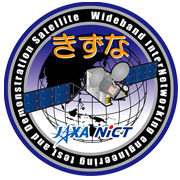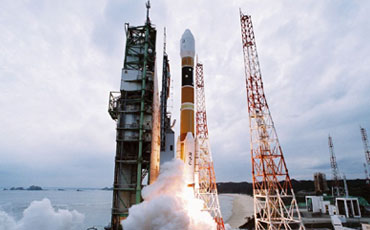The whole country is waiting for February 15, the date on which the Japanese Space Agency is supposed to launch the satellite

The sophisticated communication satellite enables super fast internet traffic with a capacity of 1.2Gbps and should increase the surfing speed for the entire population of Japan. The construction of the satellite is a (relatively) cheap alternative for providing Internet services, since it does not require the establishment of expensive ground infrastructure.
After the satellite is activated, any citizen who places a small antenna on the roof of his house (with a diameter of 45 centimeters) will be able to enjoy a 155 Mbps download speed and a 6 Mbps upload speed - far above the standard in Israel.

Moreover, as the use of the Internet is increasing, loads and bottlenecks are created, using the new satellite should ease the loads significantly and move the country to a more advanced technology.
Beyond the social and economic consequences, the satellite launch places Japan at the technological forefront of space exploration and exploitation. Japan is a regional leader in the field of building communication satellites and is one of the few countries that has the ability to launch independent satellites (along with Israel).

On February 5, the satellite was moved to the assembly building and loaded onto the launcher. These days, final tests are being conducted for the missile launcher and they hope that the weather will make it possible to launch without delay.
More information
Information about the "Kizuna" satellite on the website of the Japanese Space Agency

13 תגובות
Israel does not have the ability to launch communication satellites.
Israel is able to lift a satellite weighing several hundred kilograms into a low orbit (about 100 kilometers).
A communication satellite weighs several tons and needs to be lifted to a height of 36 thousand kilometers.
So we don't belong to this prestigious club yet, and we probably won't in the near future.
Small correction
The satellite will rotate in approximately 23 hours and 56 minutes and not in 24 hours.
Sabdarmish Yehuda
How will an upload speed of 6Mbps be reached? Doesn't that mean they will have to transmit to a satellite? And if so, wouldn't it make the surfing speed a bit more expensive to buy a control room?
I forgot to attach the relevant link to my previous response, so here it is:
http://www.jaxa.jp/countdown/f14/overview/kizuna_e.html
here:
It really says that the satellite is cruising at an altitude of 36000.
I just came to the article and wanted to write what A has already written.
Something is wrong here - if the height is 250 km it is not geostationary
A geostationary orbit is located at a distance of 36000 km, not 250. And from the orbit, it is tangent to the equator. Any other orbit requires an antenna with a tracking system that "chases" the satellite. Also, the satellite will be available for a short period of time in the entire region.
Good day and happy internet
so that it will circle the earth every 24 hours,
In this case it will not go around the earth, it will only go around it and do it like the earth in 24 hours
Because if it orbited the earth then there would be no reception for part of the time
The bandwidth of the satellite is 1.2Gbps and a single surfer can download information at a rate of 155Mbps
If this is true, then the satellite is intended for about 8 users...
Eshkol When you say above the acceptable in Israel, it does not mean acceptable by whom, but above the acceptable = above the suggested speed, the average speed in Israel
"And an increasing surfing rate of 6 Mbps - far above what is customary in Israel."
Accepted by whom?